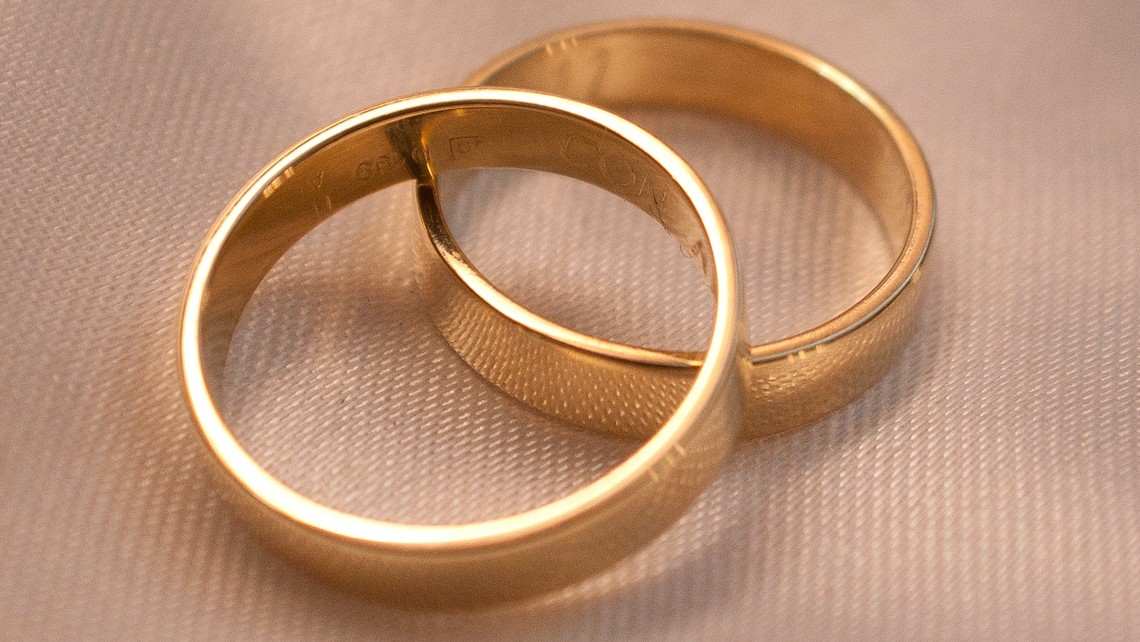
An acquaintance who wasn’t particularly affiliated with any faith tradition once asked me how the Catholic Church defines love. I asked him what his view or interpretation of love was. He explained that his limited understanding of love revolved around a willingness to help someone in need. A genuine act of love I said, is simply placing the other persons needs before your own and expecting nothing in return. Somewhat surprised by my answer he asked me how this was possible since he viewed human beings as being very needy and selfish. As we continued our conversation the context of his original question focused on marriage and what the Catholic Church specifically teaches on the sacrament of Holy Matrimony.
The challenge my friend proposed was that it would be very difficult to find someone who would serve someone unconditionally without expecting something is return. From his perspective, the premise of a relationship between a man and woman involves a form of give or take, a compromise of the senses if you will. I proposed to him that there is such a person in history who did offer Himself for the sake of others knowing He would suffer greatly at the hands of the very people he came to save. Skeptical at my proposition, I told him the man I was referring to is Jesus Christ the Son of God.
But I love my sins
My friend expressed a visible disdain that I would propose Jesus Christ as a perfect model of love because in his world view, Jesus Christ is a superficial character that people call on to justify their zealous religious attitudes. What makes Jesus Christ the perfect response to my friends view of Christ and matrimony altogether is that Jesus never chose sin over the love of God’s children. Because Jesus Christ possessed both a human nature and a Divine nature he was never under the possession or torment of sin.
When the devil directed his propositions toward Jesus in the desert, these sinful propositions were focused on dissuading Jesus’ Messianic mission to save the world from the destructive power of sin and once and for all conquer sin through death. In one way, the devil was hopeful that Jesus would love any sinful pleasure more than the people he came to liberate from the devil himself.
St. Augustine defines sin as a deed or desire contrary to the eternal law.[1] The Catechism of the Catholic Church explains that sin in any form places itself against God’s love which means that our own heart turn away from Abba, Father. Sin is love of oneself even to contempt God. It is a proud self-exaltation over anyone or anything else.[2]
A privation of love
If a man and woman make a solemn vow to marry one another before the eyes of God and His Church, the nature of the solemn vow means that neither party will deprive the other of a genuine love for one another in the name of Jesus Christ. Love within practice of filial, agape, and eros all lead toward a mutual self-giving of one toward the other in act of sacrificial caritas. A new identity between husband and wife begins to make more sense as two individuals become one through the sacrificial act of marriage, a covenantal bond is formed that no human being can ever separate.
A privation of love within matrimony can be described as a desire to love something else other than your own spouse. These desires or evil acts which constitute a privation of love simply means that I love my sins more than my bride. Within the context of the Church, the person loves his evil sinful habits more than the bride of Christ the Church. Fr. Charles Journet describes evil as not acting on its own, evil owes its identity to the will of the person who desires to commit an evil act such as adultery.[3] Thus, we have a privation of love when one’s evil desires supplant the love of a spouse.
A response in love
The gift of love rooted in holy matrimony reveals an intimate partnership between man and woman established by God. Present to this partnership is the willful commitment to love and serve one another in the name of Jesus Christ who is the author of marriage. The covenant formed between man and woman is an irrevocable personal consent. Both give themselves definitely and totally to one another. They are no longer two; from now on they form one flesh.[4]
A beautiful reality of the covenantal bond of marriage is that both man and woman make a public profession of faith to love one another before the eyes of God and that no sin will impede their love for one another, in other words; I love you more than my sins. St. John Chrysostom beautifully summarizes our responsibility as loving husbands toward our brides with the following words:
St. John Chrysostom suggest that young husbands should say to their wives: I have taken you in my arms, and I love you, and I prefer you to my life itself. For the present life is nothing, and my most ardent dream is to spend it with you in such a way that we may be assured of not being separated in the life reserved for us . . . I place your love above all things, and nothing would be more bitter or painful to me that to be of a different mind than you.[5]






